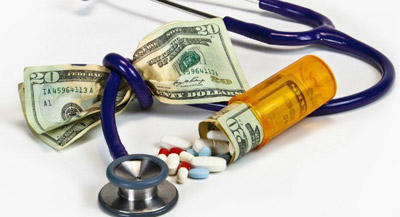Adverse health effects of testosterone deficiency in men
- Published in Testosterone - Men

Testosterone Treatment and Heart Attack Risk - new study shows testosterone treatment can even be beneficial
- Published in Testosterone Replacement Therapy

Multiple beneficial effects of testosterone replacement therapy in men with testosterone deficiency
- Published in Testosterone Replacement Therapy

Testosterone and Prostate Cancer - Bye Androgen Hypothesis, Welcome Saturation Model
- Published in Testosterone Replacement Therapy

The Androgen Study Group - Cutting Through Misleading Headlines and Exposing the Truth about Testosterone Therapy and Health
- Published in Testosterone Replacement Therapy

Relationship between Low Levels of Anabolic Hormones and Mortality in Older Men
- Published in Hormones & Health

The anabolic hormones testosterone, IGF-1 and DHEA (a pre-hormone) are receiving more and more attention by health professionals because the anabolic-catabolic imbalance that favors catabolism is a key factor in accelerated physical deterioration aging.[1, 2] Anabolic impairment can speed up the age-related decline in muscle mass and physical performance, increase in fat mass, development of insulin resistance, cardiovascular risk factors, metabolic syndrome and diabetes, conditions that in turn affect mortality.[3-18]
Interestingly, low levels of multiple anabolic hormones, rather than a single one, has a stronger association with age related muscle loss and the frailty syndrome. [19, 20] In men with chronic heart failure, deficiency of more than one anabolic hormone identifies patients with higher mortality rates.[21]
An interesting study sought to investigate the relationship between parallel deficiency of several anabolic hormones and mortality in a general population of older men, regardless of coexisting disease:[22]
Low free testosterone levels and loss of muscle mass
- Published in Testosterone - Men

Hypogonadism, aka testosterone deficiency or low-T, is primarily diagnosed by low total testosterone levels. However, more and more research is showing that free testosterone, which is the active fraction of total circulating testosterone, is independently associated with important health outcomes.
Levels of free testosterone decline more steeply than total testosterone as menage.[1-7 In many cases, total testosterone levels can be relatively high, but free testosterone low. Therefore it is important to assess both total and free testosterone levels in order to get a clear picture of the androgen status.
A recent study specifically assessed if baseline testosterone (total and free) levels predict muscle loss in middle-aged and elderly Japanese men over a 10 year period.[8]
Testosterone and Diabetes in Men - is there any association?
- Published in Testosterone - Men

Low levels of testosterone in men may contribute the development of insulin resistance and diabetes.[1-4] However, few studies have examined the association between testosterone levels and diabetes in men in the general population.
An interesting study was cunducted to test the hypothesis that low normal levels of total, free, and bio-available testosterone are associated with prevalent diabetes in men.[5]
The 20-year public health impact and direct cost of testosterone deficiency in U.S. men
- Published in Testosterone - Men

Recent evidence strongly suggests that testosterone deficiency is a predisposing factor for various chronic illnesses, including cardiovascular disease, diabetes and osteoporosis.[1-3]Testosterone deficiency has also been implicated as a modifiable disease risk factor for various chronic diseases in otherwise well patients.[4-7]
Cardiovascular disease, diabetes and osteoporosis-related fractures consume a significant portion of the $2.3 trillion in annual U.S. health expenditures. The economic impact of diabetes is estimated at $503 billion, $152 billion for cardiovascular disease, and $6 billion for osteoporosis-related fractures.[8-10]
Thus, the total burden of these diseases is over $660 billion, representing approximately 29% of all U.S. health care expenditures in 2008. Since testosterone deficiency is a potentially modifiable risk factor for these and other medical conditions, it may be responsible for substantial financial and quality-of-life burden on the U.S. health care system.[11]
A study was conducted to specifically quantify the cost burden imposed by consequences of testosterone deficiency ...[12]
Young men can also suffer health consequences of low testosterone levels
- Published in Testosterone - Men

The consequences of low testosterone levels (aka low-T) have been primarily investigated in middle-age and older men. However, low-T in young men aged 20-39 years can confer health risks as well...
Low total testosterone levels are associated with an adverse blood lipid profile, which includes high TG and low HDL, [1, 2] and a decline in total testosterone levels predisposes men to increased risk of cardiovascular disease (CVD) and mortality.[3-7]



